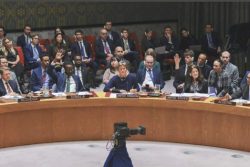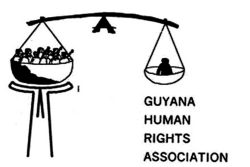Editor, a time of death is a time for being positive about peoples’contributions to society. But it should not be carried to a fault so as to totally ignore their mistakes. All of us have flaws. Thus, even people like the late Winston Murray had flaws, as we all have, which should be alluded to, to give some balance of their impact on society. One should not ignore the fact that Murray served in high positions in a party which was associated with many horrors committed on Guyanese with seemingly no regrets.
Similarly, one should not ignore the significant errors MT Lowe made. MT Lowe’s actions were politicized and affected many of us profoundly and he never expressed remorse for any of them, leaving one to believe that he was loyal to the Burnham dictatorship to the end. However, an issue of the magnitude of a transfer did not just materialize before the commission because there were so many punitive transfers of activists like Swasi Deola, Mr Abdullah, etc.
Transfers from the TSC were referred from the CEO or from Burnham. In essence, the TSC was simply a certifying agency for decisions the regime wanted to take in matters relating to personnel in the education field. In all of this, MT Lowe was not just a potted plant. He was the face of the Ministry of Education.
In 1977, when the Ministry laid out its position regarding the CHS matter, referenced in Fr Morrison’s book Justice, it was MT Lowe who made the case in a discursive two-page declaration, and it was his photograph which emblazoned on the front page of the government-controlled Sunday Chronicle (January 30, 1977) regarding the student/staff strike. The following week, Mike James, writing for the Catholic Standard (Feb 6) described Lowe’s statement as “dishonest,” “inept” and “arrogant” – not at all surprising because a government which had not earned its tenure based on performance but by electioneering chicanery, did not feel any obligation to explain itself, to come clean. And this is ultimately the point I wish to make. MT Lowe was a willing servant of a clique which had hijacked the state and which conditioned the aspirations and livelihoods of the people therein. To the extent that the state can be seen as a fount of the values of a particular society, the Burnham regime inspired a morality-in-reverse. Periodic and highly documented ballot theft returned to power a clique, whose profligacy reduced Guyana to utter destitution. To intimidate people, the security forces were deployed in the sugar and rice belts on search-and seizure operations.
Who can forget the kick-down-the-door gangs, which operated with virtual immunity. In July 1985, Eusi Kwayana and Rupert Roopnaraine led a ‘Freedom Walk’ across the country. In a commentary, the Catholic Standard (August 4, 1985) stated, “A disturbing feature of the walkers was the sight of Indo-Guyanese women in the Corentyne out in the road during the middle of the day, afraid to be in their homes for fear of rape and robbery.”
This was the state of Guyana under the dictator, and many were the minions who served him, and many were victimized including Prof Singh, Dr Jagnandan, Ms Tewari and others who had the education of children at heart. Guyanese need to be told of the facts surrounding Lowe.
On a related note, some staff at Queens College during the time of MT Lowe’s presence told me that the contributions of some prominent educators went unrecognized while Mr Lowe’s was being promoted and he was climbing ladders in the Burnham hierarchy. One was an excellent Maths teacher, Mr Chunilall, with a tremendous reputation, who was revered by all his students and who helped to make many Guyana scholars and professors of universities overseas.
Chunilall was a very modest, quiet and simple person not looking for recognition, but he deserved accolades. Other solid educators were Harold Persaud and Doodnauth Hetram who went on to become headmasters of QC for a while. Others include Lakshmi Persaud, CI Trotz and Mr London. But it was Lowe who went on to glory and it was he whom Burnham used to wreck a sound educational system.
Yours faithfully,
Vishnu Bisram
Editor’s note
For the final time we repeat, that from the beginning we did not dispute the late Mr Lowe’s role in the matter of the Corentyne teachers. But that occurred before the establishment of the Teaching Service Commission in late April 1977.









